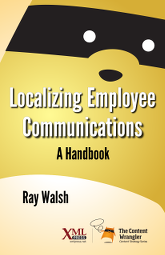Alan J. Porter, author of the forthcoming book, WIKI: Grow Your Own for Fun and Profit, has just published an article titled, Wikis in the workplace: a practical introduction at ars technica. Here is the beginning of the article.
When times get tough and belts get tight, one of the first things many companies do is begin casting about for ways increase efficiency and raise per-worker productivity. Many businesses turn to free and open-source tools to meet these needs, and at some point in such discussions someone invariably suggests a wiki for some internal project. But the wiki idea often gets rejected soon after it’s floated, typically because wikis are perceived to be insecure, inaccurate, or difficult to use; either that, or someone in the discussion has gone the wiki route before, only to see their wiki languish from lack of interest and participation.
These perceptions and experiences that lead companies to reject wikis are rooted in a common problem: the vast majority of the public has formed 100 percent of their expectations about what a wiki can and should be based on the single example of Wikipedia. Few have ever seen wikis used creatively and successfully in a real-life business context, so even when IT professionals attempt to implement wikis in their own companies they lack real experience and good examples to imitate.
As someone who’s currently writing a book on wikis, I’ve talked at length with a number of different organizations about the wiki’s role in their business. In this article, I’ll share with you some of what I’ve learned about wikis in the real-world by taking a case-study approach to describing how and why a handful very different organizations are successfully using wikis. After seeing the kinds of things that are being done with wikis, you might be motivated to give the technology a second look.
Continue reading “Wikis in the workplace: a practical introduction” at ars technica




